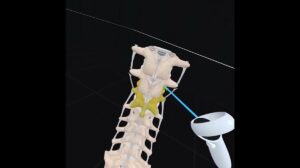NEW YORK (Reuters Health) – Bosentan is not an effective therapy for patients with idiopathic pulmonary fibrosis (IPF), suggests a new study organized by the company that makes the drug.
The study, published in the American Journal of Respiratory and Critical Care Medicine, failed to show an effect on primary endpoints of IPF worsening and death, or on measures of patient quality of life and health status.
Authors led by Dr. Talmadge King of the University of California, San Francisco said the finding was “disappointing.” They initiated the trial after a previous study of bosentan showed no effect on six-minute walk distance in IPF patients but suggested a trend in increased time to IPF worsening or death in those taking bosentan.
The randomized, double-blind, placebo controlled study, known as the Bosentan Use in Interstitial Lung Disease (BUILD)-3 trial, was conduced in 616 patients at 119 medical centers.
In 2007 and 2008, 407 patients were randomized to bosentan and 209 were randomized to a placebo. All patients had mild to moderate IPF confirmed with high-resolution computed tomography and surgical lung biopsy.
Bosentan was given at an initial dose of 62.5 mg twice daily, which was titrated up to a target dose of 125 mg twice daily after 4 weeks. Endpoints were assessed every 4 months during a mean follow-up of 19.9 months.
IPF worsening was defined as decreases of at least 10% in forced viral capacity (FVC) and at least 15% in diffusing capacity of the lung for carbon monoxide (DLCO), measured at least 4 weeks apart.
There were 252 morbidity or mortality events, occurring in 38.8% of the bosentan group and 45% of the placebo group. Seventeen patients in the study died, 11 in the bosentan group (2.7%) and 6 in the placebo group (2.9%).
There was no difference between patients taking bosentan and those on the placebo for combined rates of IPF worsening and death (HR = 0.85, p = 0.2110.)
Bosentan also showed no effect on scores of quality of life or health state, and also did not affect shortness of breath.
The authors report a small, non-significant delay in time to IPF worsening in patients taking bosentan, but no difference in time to death.
Elevations of liver alanine or aspartate aminotransferases were more common in patients taking bosentan, but the drug was well tolerated, King and his colleagues said.
The study was funded by Actelion Pharmaceuticals, which was also involved in data collection and analysis.
Patients selected for the study had been those the authors predicated would be most likely to respond to treatment given that they did not have severe IPF and that all cases had been confirmed.
They conclude, “It is possible that the effects of bosentan in IPF are sufficiently slight that a significant treatment effect may only be discerned with an even larger patient population, a greater number of events, or a less demanding primary endpoint.”
American Journal of Respiratory and Critical Care Medicine.




